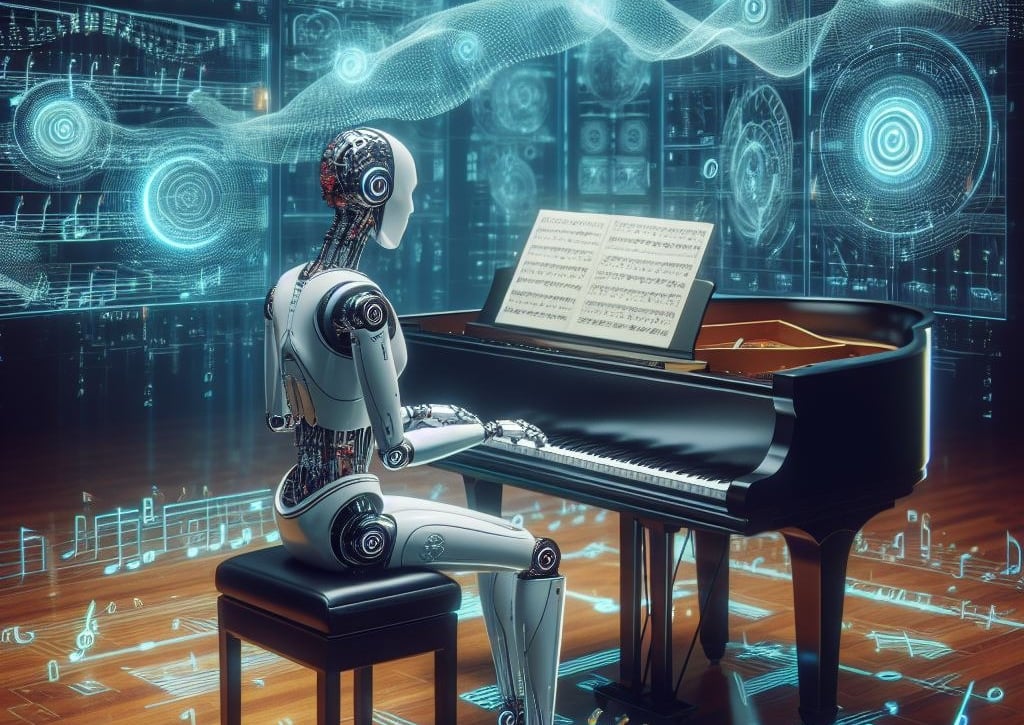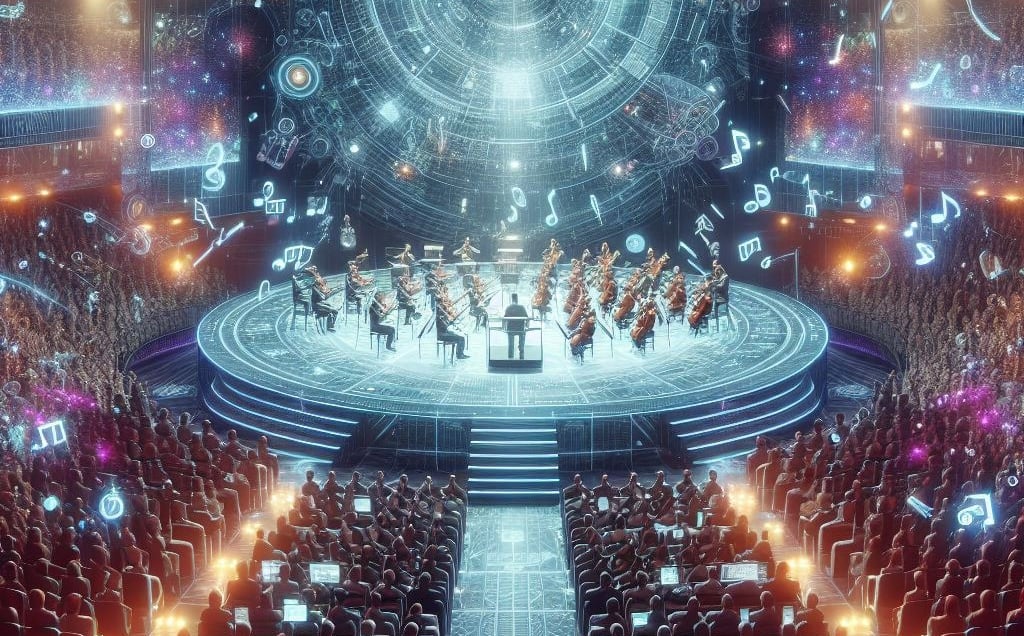The Impact of Artificial Intelligence in Music Apps on the Artists Community
As AI becomes more sophisticated and ubiquitous in music production, it will likely continue to evolve, offering new possibilities for artists and audiences alike. However, it also raises ethical considerations that challenge our traditional notions of creativity and ownership.


The Impact of Artificial Intelligence in Music Apps on the Artists Community
Artificial Intelligence (AI) has made significant advancements in various industries, and the music industry is no exception. In recent years, we have witnessed the emergence of music apps that utilize AI algorithms to create music from scratch and alter the voice of singers. While these technologies offer exciting possibilities, their impact on the artists' community is a subject of debate. In this blog post, we will explore the benefits and potential drawbacks of AI-powered music apps and analyze their implications for artists.
One of the key benefits of AI-powered music apps is the ability to generate music quickly and effortlessly. Traditionally, artists would spend hours, days, or even weeks composing and arranging music. With AI, these time-consuming tasks can be automated, allowing artists to focus more on their creativity and artistic vision. AI algorithms can analyze vast amounts of musical data, identify patterns, and generate melodies, harmonies, and rhythms that align with the artist's style. This not only accelerates the music creation process but also provides artists with a source of inspiration and new ideas.
Moreover, AI-powered music apps can enhance the overall quality of music production. These apps often come equipped with advanced audio processing algorithms that can improve the sound quality of recordings. They can remove background noise, correct pitch and timing issues, and even simulate the sound of different instruments. This level of precision and control allows artists to achieve professional-grade recordings without the need for expensive studio equipment or hiring a team of engineers. As a result, AI empowers artists to produce high-quality music independently, leveling the playing field and reducing the barriers to entry in the music industry.
However, the rise of AI in music apps also raises concerns within the artists' community. One of the main concerns is the potential loss of human touch and authenticity in music. While AI algorithms can mimic various musical styles and genres, they lack the emotional depth and personal experiences that artists bring to their music. Many artists argue that the imperfections and nuances in their performances are what make their music unique and relatable to their audience. The fear is that AI-generated music may sound technically flawless but lack the soul and emotional connection that human musicians can convey.
Another concern is the impact of AI on employment opportunities for musicians. As AI algorithms continue to improve, there is a possibility that they could replace certain roles traditionally performed by musicians. For example, AI-powered apps can generate background music for videos, eliminating the need for composers or session musicians. While this may streamline the production process and reduce costs for content creators, it also raises questions about the livelihood of musicians who rely on these opportunities for income. It is essential to find a balance between the benefits of AI in music production and the preservation of employment opportunities for artists.
In conclusion, AI-powered music apps have the potential to revolutionize the music industry by enabling faster music creation, enhancing production quality, and democratizing access to professional-grade tools. However, it is crucial to consider the potential drawbacks and address the concerns within the artists' community. By finding a balance between AI technology and human creativity, we can harness the power of AI to augment artists' abilities and create a vibrant and diverse music landscape.
Despite the concerns raised by critics, AI-generated music has the potential to coexist harmoniously with human creativity. It should be viewed as a tool that can enhance the creative process rather than replace it. AI algorithms can provide musicians with a vast pool of ideas and inspiration, but it is up to the artist to mold and shape these raw materials into something unique and personal.
Moreover, AI-generated music can also serve as a valuable educational tool. Aspiring musicians can study the algorithms' output to gain insights into different musical styles and techniques. They can learn from the patterns and structures generated by the AI, allowing them to expand their musical knowledge and experiment with new ideas.
Furthermore, the use of AI in music creation can lead to exciting collaborations between humans and machines. Artists can work hand in hand with AI algorithms, using them as co-creators or collaborators. This opens up new possibilities for exploration and experimentation, pushing the boundaries of what is musically possible. The combination of human creativity and AI-generated ideas can result in truly groundbreaking and innovative compositions.
It is also worth noting that AI-generated music can help artists reach a wider audience. With the advent of streaming platforms and digital distribution, the music industry has become highly competitive. AI-generated music can help artists stand out from the crowd by offering something unique and different. It can attract listeners who are looking for fresh and innovative sounds, expanding the reach and impact of the artists' work.
In conclusion, AI-generated music is neither solely a game changer nor a threat. It is a powerful tool that has the potential to revolutionize the music industry and enhance the creative process for artists. While there are valid concerns about the impact of AI on the value of human creativity, it is essential to embrace this technology as a means of exploration, inspiration, and collaboration. By harnessing the power of AI algorithms, musicians can push the boundaries of their own creativity and create music that is truly groundbreaking.
Moreover, the use of voice-altering apps raises questions about the role of technology in the creative process. While technology has undoubtedly revolutionized the music industry, allowing for unprecedented levels of innovation and experimentation, it also presents a potential threat to the traditional notions of artistic expression.
One of the main concerns is the loss of the human element in music. As voice-altering apps become more sophisticated, there is a risk that they will replace the need for genuine vocal talent. Instead of spending years honing their craft and developing their own unique sound, singers may rely on these apps to create a desired vocal style. This could lead to a generation of artists who lack the depth and authenticity that comes from years of dedicated practice and self-discovery.
Furthermore, the use of voice-altering apps can also undermine the credibility of live performances. Audiences attend concerts and shows to witness the raw talent and skill of the performers, to experience the energy and emotion that can only be captured in a live setting. If singers heavily rely on voice-altering apps during their performances, it raises questions about the authenticity of their live vocals. Are they truly capable of delivering a captivating performance without the aid of technology? Will audiences feel cheated if they discover that what they heard was not entirely the artist's natural voice?
Another concern is the potential for abuse and manipulation. Voice-altering apps can be used not only to enhance a singer's voice but also to disguise their true abilities. This opens up the possibility for artists to deceive their audience, presenting themselves as something they are not. In an industry that already struggles with issues of image and authenticity, the use of voice-altering apps could further erode trust between artists and their fans.
Ultimately, the question of whether voice-altering apps enhance or dilute artistic identity is a complex one. While these apps can undoubtedly offer new creative possibilities, they also come with risks and challenges. It is crucial for artists, audiences, and industry professionals to engage in a thoughtful and ongoing dialogue about the impact of technology on artistic expression. Only through open and honest conversations can we ensure that technology is used in a way that enhances, rather than diminishes, the artistry and authenticity of music.
Artists should also be aware of the ethical implications that arise with the use of AI in music creation. As AI algorithms become more advanced, they have the potential to generate music that closely mimics the style of human artists. This raises questions about the ownership and originality of AI-generated compositions. Should AI-generated music be credited to the algorithm or to the artist who used the algorithm as a tool?
Furthermore, the use of AI in music creation can also have implications for the job market within the music industry. As AI-powered music apps become more sophisticated, they have the potential to automate certain aspects of music production, such as composing melodies or generating harmonies. This could potentially lead to a decrease in demand for human composers and musicians, as AI algorithms become capable of producing high-quality music on their own.
On the other hand, AI can also create new opportunities for artists. By collaborating with AI algorithms, artists can explore new creative possibilities and reach new audiences. AI-powered music apps can analyze data about listeners' preferences and generate music that is tailored to their individual tastes. This personalized approach to music creation can help artists connect with their audience on a deeper level and build a loyal fan base.
Ultimately, the balance between technology and artistry in music creation is a delicate one. While AI has the potential to revolutionize the way music is created and consumed, it is important for artists to approach it with caution and maintain their artistic integrity. By embracing AI as a tool and using it to enhance their creativity, artists can unlock new possibilities and push the boundaries of what is possible in music.


